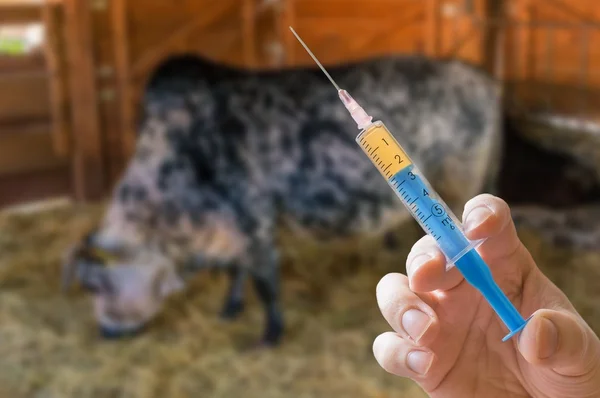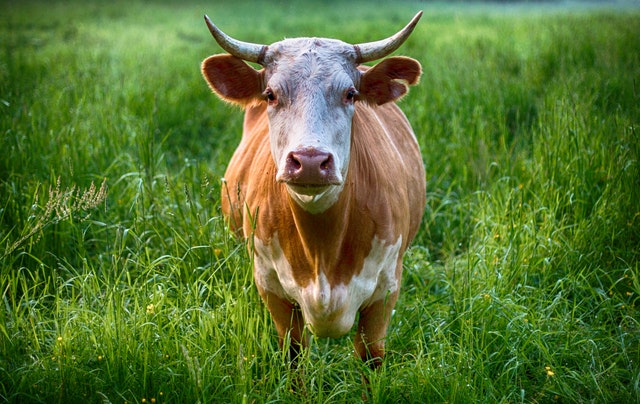Kenya has an ambitious nationwide livestock vaccination program set for implementation in 2025.
The plan is to vaccinate 22 million cattle and 50 million sheep and goats against livestock diseases like foot-and-mouth disease (FMD), Peste des Petits Ruminants (PPR), and Rift Valley fever (RVF). This initiative has both supporters and detractors, each presenting compelling arguments.
In this post, we give you five arguments for and against the program. The discussion uses figures and facts as presented by various peoples including livestock keepers, traders, politicians and vet officer.
Arguments For the Livestock Vaccination Program
The proposed livestock vaccination program in Kenya aim is to to reduce cattle disease prevalence, enhance food security, and boost economic growth for both farmers and the nation. Here are the five direct benefits you can expect from this program;
1. Economic Benefits
By establishing disease free zones and reduce disease outbreaks, the program will boost the Kenya’s Livestock industry’s productivity. This will help you as a farmer to export beef and dairy products to international markets thereby increasing your earnings. For instance, if the vaccination rate reaches 85%, as recommended by the Ministry of Agriculture, it could unlock lucrative export markets in the EU and the US potentially doubling farmer earnings.
RELATED: What You Need to Know About GMO Food
According to the KNBS, Keny’as livestock sector contributes over 12% to Kenya’s GDP and about 50% of the agricultural GDP, employing 50% of agricultural labor and supporting over 60% of Kenyan households. Any slight improvement in the subsector will have a ripple effect on agriculture production, food processing and public health.
2. Global Market Access
Meeting international health standards through vaccination is essential for exporting dairy and beef products. This access can open new markets like the European Union and North America and more opportunities for Kenyan herders.
Currently, only 10% of Kenya’s animals have been vaccinated, but reaching the target of 85% could significantly enhance Kenya’s export capabilities.
3. Food Security
Vaccination will make Kenya’s cattle, sheep and goat healthier in the short and medium term. This in turn will enhance the regions food security by maintaining a stable supply of meat and dairy products as well as reduced food prices. This will benefit both the local consumption and export.
In 2023, about 136,000 cattle, camels, goats, and sheep were vaccinated against RVF in Isiolo County. The pilot vaccination program against Rift Valley fever resulted in a significant reduction in disease outbreaks, improving both animal health and farmer incomes.
4. Animal Welfare
Protecting your animals from diseases aligns with ethical values of animal care and welfare. It reduces their suffering and promotes a humane approach to livestock management.
For example, PPR affects sheep and goats with infection rates up to 90% and mortality rates up to 70%. By vaccinating them, it prevents them from such high mortality rates.
5. Environmental Conservation
By mitigating the impact of diseases, the program indirectly supports environmental conservation and climate-action efforts.
Healthier livestock require less medication and can thrive in more sustainable conditions. Additionally, the government’s introduction of an Animal Identification and Traceability System (ANITRAC) will improve market access and curb livestock theft, further supporting sustainable animal farming practices.
Arguments Against the Livestock Vaccination Program
The government’s commitment to provide vaccines at no cost and implementing supportive measures like ANITRAC and livestock insurance demonstrates a comprehensive approach to address sector challenges. However, according to some, this is misplaced priorities.
In addition, there the national government has taken charge on a devolved function. Besides they seem to make it a mandatory and forced policy sparking fierce arguments as detailed below
1. Lack of Trust
Most livestock farmers fear that the vaccines might be harmful or part of a larger conspiracy to control their livestock farming. This has led to mistrust in the program’s intentions with many promising to stay away.
For instance, a livestock farmer in the Rift Valley expressed concerns that the vaccines could compromise the quality of his cows and introduce poverty by making the cure inaccessible to the poor. Other spread conspiracies state that the vaccine is to make their animals to fart less methane gas to curb carbon print. Another group believes that the vaccines will introduce nano bots and modified gene markers (GMO) that will affect their productivity and birthing. The fear of some is that this may lead to future health effects on humans upon their consumption including prevalence of harmful diseases like cancer.
2. Economic Burden
Although the vaccines are provided at no cost to farmers, there are concerns about potential long-term economic impacts. such as dependency on vaccinations and potential side effects.
In Isiolo County, some livestock keepers chose not to vaccinate due to concerns about side effects, particularly abortions during pregnancy.
3. Social-Cultural Concerns
For livestock rearing communities in Kenya, the vaccination program may conflict with their traditional practices or religious beliefs about animal health and management.
This cultural resistance is likely to hinder the program’s success if not addressed through civic education, public participation and community engagement.
4. Effectiveness and Safety
Fierce critics including animal health experts and vets question the effectiveness and safety of the vaccines. Some are citing the vaccines will be exported and therefore needs more evidence and transparency about their production and testing.
The government has assured the program will use locally manufactured vaccines by the Kenya Veterinary Vaccines Production Institute (KEVEVAPI). However, many livestock chain players remain skeptical.
5. Government Accountability
Some politicians argue that the government should focus on addressing underlying issues like drought and infrastructure rather than solely relying on vaccination programs. The government has introduced a livestock insurance policy to protect farmers from losses during droughts, but more comprehensive solutions are needed
Final Verdict
In conclusion, while there are valid concerns about the livestock vaccination program, the benefits of disease control, economic growth, and food security outweigh the drawbacks. The program’s success hinges on addressing mistrust, ensuring transparency, and providing education on the safety and effectiveness of the vaccines. By doing so, Kenya can enhance its livestock industry and improve the livelihoods of its people.
Ultimately, the success of this program will depend on collaboration between the national and county governments, farmers, and the broader community to ensure that Kenya’s livestock sector reaches its full potential.



